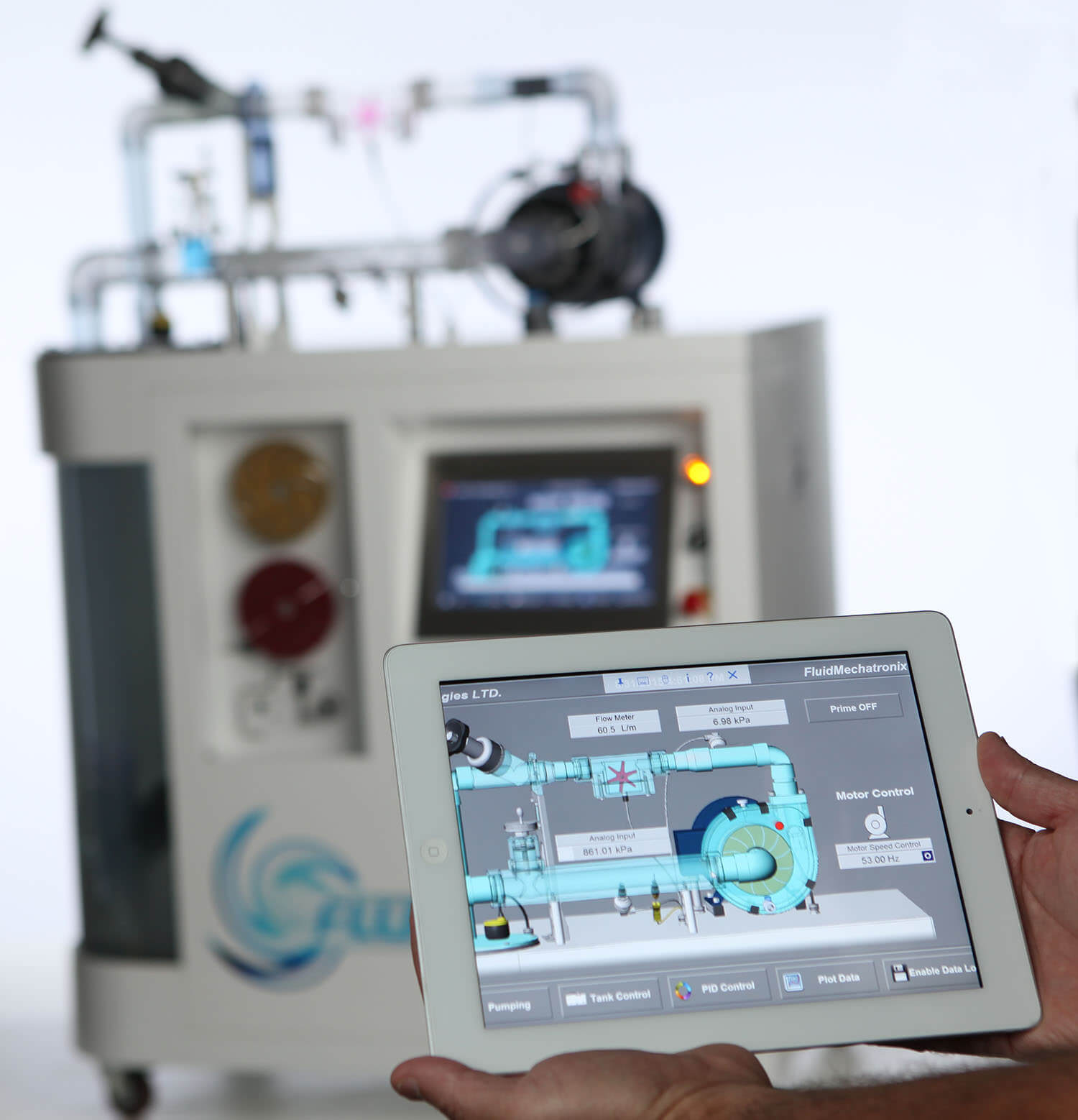As Dr. Paul Daniell was looking over the new Pump Lab, he turned to the three students in the room and asked, “What do you think is making it cavitate like this?”

Jake Double ’14 (Evans City, Pa.) and Kara Gromicko ’14 (Irwin, Pa.) both suggested there could be a pressure issue, while Nicole Schaly ’14 (Ashland, Ohio) looked at the monitor and offered up another potential cause.
It didn’t take them long to figure out what was causing the problem, proving that this new mobile lab has added another dimension to the education being offered in Petroleum Engineering at Marietta.
With this see-through flow lab, students can visualize the internal operations within fluid flow systems, and gain a better understanding of the laws governing pipes, pumps and energy in a flow system.
“The number of experiments and opportunity for learning are endless,” says Daniell, Assistant Professor in Petroleum Engineering. “Right now we have the seniors working on doing process control experiments, and the sophomores working on modeling the system to bring together the theory and the real machine. The ability to predict the behavior of a physical system with a model and then confirm it with experimentation is a very important skill for an engineer.”
Daniell says a majority of the hands-on experience with equipment is done in the field during internships, so he feels this fills in some of the educational gaps that had been missing.
Schaly, who has a job lined up as a production engineer with Anadarko Petroleum Corp. after graduation, is still getting used to the new equipment, but she can see the value it will have in the teaching lab.
“We have seen the formulas and theories on the board and we’ve talked about it in class, but now we can take a real life situation and test it on a system that brings it to life,” she says. “Even if we had a problem like this in the field, we wouldn’t be able to see it like we can here.”
Being able to see the mechanics at work is one of the huge selling points for the Pump Lab.
“Pumps and piping systems are part of the life of an engineer and must be understood. Also, control systems are present everywhere in industry and our everyday lives,” Daniell says. “Simple examples would be cruise control on your car to keep constant speed and room temperature control with a thermostat. In the end, an engineer needs to understand the core principles of an engineering system and build a system to allow it to operate on target and have it respond quickly to upsets. This lab accomplishes both for the students.”
Later that same day, Daniell had 20 sophomore team leaders come to the lab in the basement of the Brown Petroleum & Geology Building to get their first look at how the pump system works. Daniell says they will only run water through the pumps as to not damage it with more corrosive liquids.
“I’m going to be doing a lot of frack work, so it is good to see some of the applications here,” says Gromicko, who has a job lined up with Schlumberger.
“There is no question this is directly related to what we will be doing in our jobs,” says Double, who is also slated to be a production engineer with Anadarko. “I’m a very visual person and when I can see it on the board and then see it in action it just reinforces what we are learning.”
Double even got his professor thinking about some of his calculations after noticing the difference in the size of the pipes.
“When the students start to ask these types of questions, I know it is time for them to graduate and go into the real world and that is very satisfying,” Daniell says. “The new system gives students the hands on experience that is so important to application. Employers value candidates who have practical experience to go with the theory.”